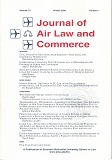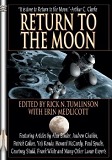FAQ #36: Could this law force the US to recognize a foreign government's Lunar land claim?
Definitely not!
The law says US recognition of Lunar land claims can only be extended to: a "Private entity: An individual, corporation, or consortium of companies and individuals or a consortium of individuals that is not controlled by any sovereign state or government."
The normal corporate law examples of "control" would apply, including ownership of a majority of the voting stock (or the functional equivalent thereof) and the ability to select the Board of Directors. Merely being subject to government regulations, however, like all companies are, wouldn't make an entity "government controlled" for this purpose.
In that sense, Petróleos de Venezuela or China National Offshore Oil Corporation (CNOOC) are government controlled companies, but ExxonMobil or BP are private entities.
So, no, this law would not allow recognition of foreign government Lunar land claims, even through front companies. But a settlement established by true private enterprise would be eligible for recognition regardless of what nation it is based in.
Recognition is pretty much the only leverage the US has when it comes to foreign Lunar land claims, and it will only matter to those whose objective is to make a commercial profit.
With or without this law, there is nothing to stop any nation, China for example, from developing the means to establish a settlement, withdrawing from the Outer Space Treaty and a year later claiming the whole Moon. Bob Bigelow, billionaire hotelier and founder of Bigelow Aerospace, believes the Chinese plan to do exactly that.
Whether they claim the Moon directly or through a controlled company, they'll have no need to sell land deeds to Americans, so they won't care that we wouldn't let them.
That's why it's now more critical than ever that the US pass a law such as The Space Settlement Prize Act. If free nations fail to enable private industry to establish a foothold on the Moon - and soon - by recognizing valuable property rights based on use and occupation, other nations may simply march on past us.
They will be on the Moon and we will not - and we may even be locked out.

Questions & Answers about Lunar Land Claims Recognition
Note: The first 25 FAQs below are reprinted from the Space Settlement Initiative ![]() website.
website.
What is the real purpose of enacting a Lunar land claims recognition law?
What does international law say about private property ownership in space?
Can there be property ownership without national sovereignty?
What if other nations refuse to recognize land claims in space?
Why not allow smaller, limited land claims for easier steps than settlement?
Could lunar land really be worth enough money to make a difference?
What conditions should the US set for recognition of a claim?
How much land should a settlement be able to claim... and why?
Are the weaknesses and compromises in this plan likely to be permanent?
Could other sources of revenue be enough without land claims recognition?
What effect would this have on NASA and the aerospace companies?
More FAQs
The FAQs above cover basic questions about Lunar Land Claims Recognition. The following questions address more advanced issues.
If we really went to the Moon in 1969, why aren't we there now?
What were the assumptions before the Outer Space Treaty, (e.g. Robert Heinlein)?
Will changing how NASA works bring the taxpayers back on board?
Could this law force the US to recognize a foreign government's Lunar land claim?
Would Article VI of the Outer Space Treaty prohibit Lunar land claims recognition?
| Back from Could this law force the US...? to Frequently Asked Questions (FAQs) Back from Could this law force the US...? to the Space Settlement Institute home page |




